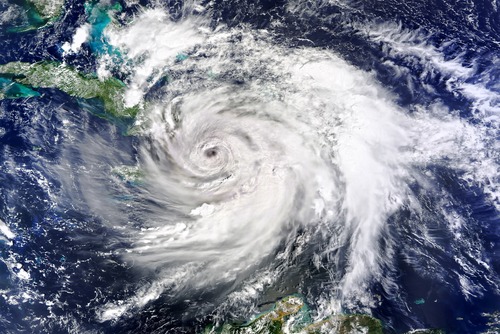
In advance of what is predicted to be another busy hurricane season, the Biden administration has allocated $1 billion to the Federal Emergency Management Agency (FEMA) for pre-disaster mitigation resources to prepare for extreme weather events and other disasters.
Meeting with homeland security and climate teams at FEMA’s National Response Coordination Center in Washington, D.C. Monday, Biden received an update on preparations for the 2021 hurricane season.
In 2020, the United States saw a record year for extreme weather, including 30 named storms in the Atlantic Basin. The National Oceanic and Atmospheric Administration (NOAA) has predicted the United States will see 13 to 20 named storms, of which six to 10 could become hurricanes, and three to five could become major hurricanes.
NOAA predicted a 60 percent chance of an above-normal hurricane season, a 30 percent chance of a normal hurricane season, and a 10 percent chance of a below-normal hurricane season. However, scientists at NOAA do not anticipate a repeat of 2020’s historic level of activity.
The Administration also announced the development of next generation climate data systems at NASA to help understand and track how climate change impacts communities.
The White House said last year’s storms affected communities across the country in 22 separate weather and climate-related disasters, costing more than $1 billion each, with a cumulative price tag of nearly $100 billion.
“As climate change threatens to bring more extreme events like increased floods, sea level rise, and intensifying droughts and wildfires, it is our responsibility to better prepare and support communities, families, and businesses before the disaster – not just after,” the White House said in a press release. “This includes investing in climate research to improve our understanding of these extreme weather events and our decision making on climate resilience, adaptation, and mitigation. It also means ensuring that communities have the resources they need to build resilience prior to these crises.”




